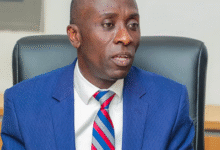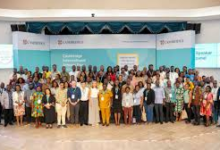USAID ends 5-yr maternal and child survival programme with Ghana

The United States Agency for International Development (USAID) has ended its five-year Maternal and Child Survival Programme (MCSP) with Ghana.
The initiative was rolled out in 25 beneficiary countries across the world aimed at preventing and reducing maternal and child deaths to achieve universal health coverage (UHC).
About $14million had been invested in sustainable reproductive, maternal, newborn and child health (RMNCH) interventions at the end of the programme.
At a dissemination workshop in Accra yesterday to track some key accomplishments under the MCSP in boosting the health sector, USAID Ghana Health Team Lead, Janean Davis, hoped government scaled up innovations made to improve health outcomes.
In collaboration with key sector players, Ms Davis outlined USAID’s support in the area of improved e-learning and capacity building for nursing and midwifery training schools across the country, strengthening of community-based health planning and services (CHPS) compounds, early childhood development and enhancing the national health insurance scheme (NHIS).
“As a result of these interventions, the next generation of nurses and midwives are better equipped with the skills and knowledge to deliver quality healthcare which is critical to supporting Ghana’s goal of UHC,” she noted.
According to her, though the MCSP had elapsed, the US government was committed to supporting interventions bordering on child and maternal health in the sector urging for cross-sectoral collaborations to address the health needs of Ghanaians.
“We can accomplish so much more when we coordinate and join forces. Together, we form a large network of champions committed to creating a healthy, prosperous and resilient Ghana.
We look forward to continuing this partnership with the government of Ghana’s health system,” Ms Davis assured.
Director General (DG) of the Ghana Health Service (GHS), Dr Anthony Nsiah-Asare in expressing appreciation to the US government for the MCSP, called to mind some notable progress made in the health sector in reducing child and maternal mortality.
“We have already seen a remarkable progress from the MCSP in strengthening CHPS,” he said, and was optimistic that the provision of pre-service education in health training institutions would engender a quality health workforce in the near future.
Dr Nsiah-Asare further noted that under the MCSP, the GHS in the last two years had rolled out a pilot project to leverage frontline community health workers to promote the practice of early stimulation and responsive parenting techniques among parents and caregivers in selected regions across the country.
Among other achievements chalked under the project, the DG noted the need for efforts to be stepped up in reaching many more communities in the country with quality healthcare services.
He thus reiterated the commitment of the “GHS and government to continue to cooperate with health development partners to improve the well-being of the Ghanaian people and at least achieve primary UHC.”
The event which had in attendance officials of the Ministry of Health, the National Health Insurance Authority, Ministry of Gender, Children and Social Protection and heads of health units also featured a “knowledge marketplace” which showcased e-learning training modules and materials adopted under the MCSP to reduce maternal mortality.
By Abigail Annoh and Dorothy Brocke





